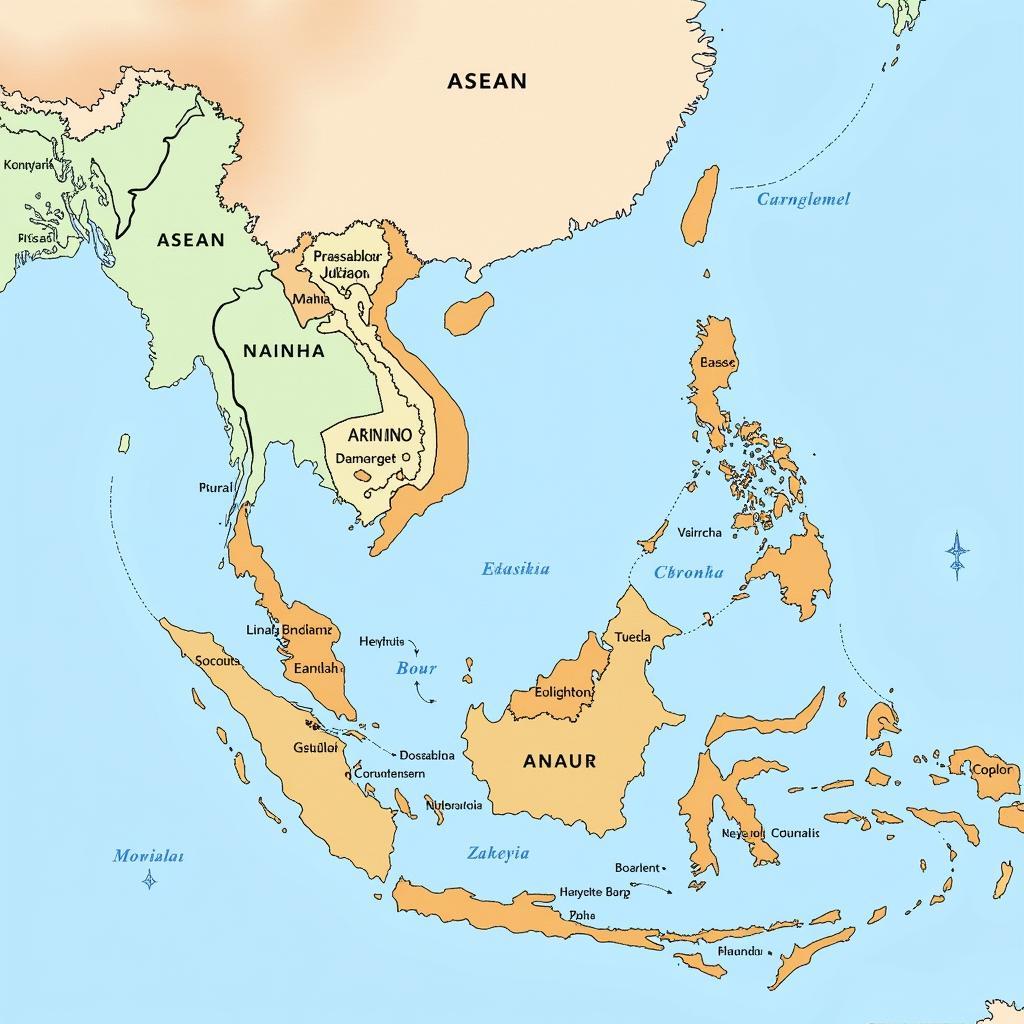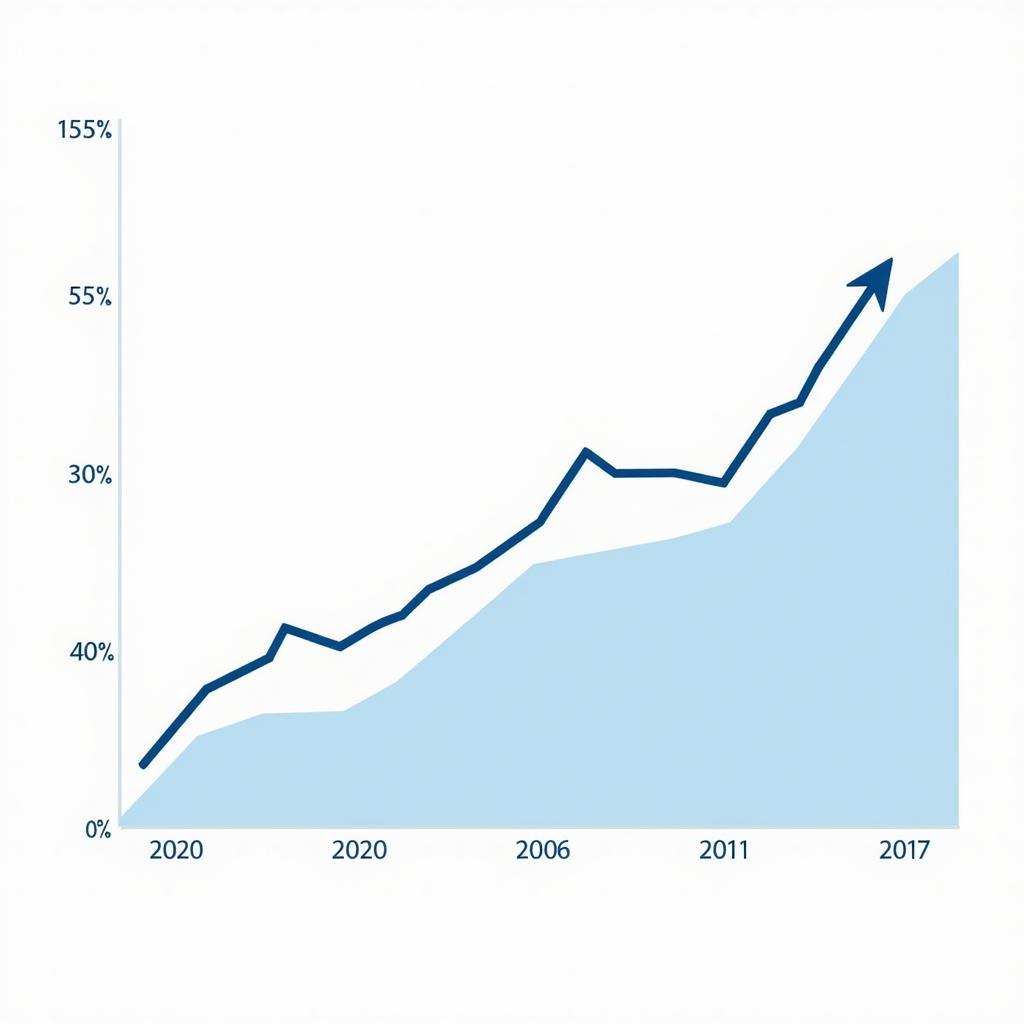The Association of Southeast Asian Nations (ASEAN) is a dynamic and diverse intergovernmental organization comprising ten member nations. These countries represent a wide range of cultures, economies, and political systems, yet they are united by a shared commitment to regional peace, stability, and prosperity. This article will delve into the specifics of each member, highlighting their unique contributions to the ASEAN community. After reading this, you’ll have a deeper understanding of the nations that make up this vital organization.
Understanding the Diversity of ASEAN Member Nations
ASEAN’s strength lies in its diversity. From the bustling cityscapes of Singapore to the serene rice paddies of Vietnam, each member nation brings a unique flavor to the regional table. This mix of cultures, religions, and economic strengths fosters collaboration and allows for the sharing of best practices across various sectors. The members of asean collectively contribute to the economic growth, social progress, and cultural richness of the region.
A Closer Look at the Individual Member Nations
Let’s explore each member nation in more detail:
-
Brunei: A small but wealthy nation known for its oil and gas reserves. Brunei prioritizes economic diversification and sustainable development.
-
Cambodia: A nation rich in history and culture, Cambodia is experiencing rapid economic growth driven by tourism and garment manufacturing.
-
Indonesia: The largest member state by population, Indonesia is a significant economic player in the region with a diverse archipelago and abundant natural resources.
-
Laos: A landlocked country known for its beautiful landscapes and laid-back atmosphere. Laos is focusing on infrastructure development and sustainable tourism.
-
Malaysia: A multicultural nation with a vibrant economy, Malaysia is a hub for technology, manufacturing, and tourism.
-
Myanmar: A country undergoing significant political and economic transitions. Myanmar is rich in natural resources and has vast potential for growth.
-
Philippines: An archipelago nation known for its warm hospitality and vibrant culture. The Philippines has a strong service sector and is a major exporter of manpower.
-
Singapore: A highly developed city-state renowned for its efficient infrastructure and strong financial sector. Singapore is a global hub for trade and innovation.
-
Thailand: A popular tourist destination known for its beautiful beaches, ancient temples, and delicious cuisine. Thailand’s economy is driven by tourism, agriculture, and manufacturing.
-
Vietnam: A rapidly developing nation with a young and dynamic population. Vietnam is a major exporter of textiles, electronics, and agricultural products.
 Map of ASEAN Member Nations
Map of ASEAN Member Nations
The Economic Impact of ASEAN Member Nations
The combined economic power of the Member Nations Of Asean makes the region a significant force in the global economy. Intra-ASEAN trade is a major driver of growth, and the organization is working towards deeper economic integration through initiatives like the ASEAN Economic Community (AEC).
What are the benefits of ASEAN membership?
Membership in ASEAN provides numerous benefits, including:
-
Enhanced trade opportunities: Reduced tariffs and streamlined customs procedures facilitate trade within the region.
-
Increased foreign investment: ASEAN’s growing market attracts foreign investment, creating jobs and boosting economic growth.
-
Regional security and stability: ASEAN promotes dialogue and cooperation on security issues, contributing to regional stability.
-
Cultural exchange and understanding: ASEAN fosters cultural exchange and understanding among its diverse member states.
 ASEAN Economic Growth Chart
ASEAN Economic Growth Chart
The Future of ASEAN
ASEAN continues to evolve and adapt to the changing global landscape. The organization is committed to strengthening regional cooperation, promoting sustainable development, and addressing shared challenges such as climate change and cybersecurity. The Asean 50th anniversary 2017 was a testament to the organization’s resilience and enduring commitment to regional cooperation.
How does ASEAN address global challenges?
ASEAN addresses global challenges through:
-
Collective action: Member states work together to address issues such as climate change, disaster management, and transnational crime.
-
Dialogue and diplomacy: ASEAN engages in dialogue and diplomacy with other countries and international organizations to promote regional and global peace and stability.
-
Capacity building: ASEAN invests in capacity building to enhance the skills and knowledge of its member states in areas such as science, technology, and innovation. The asean 3 science technology and innovation ministerial forum is an example of such initiative.
In conclusion, understanding the member nations of ASEAN is crucial to appreciating the complexity and dynamism of this important regional organization. Each nation plays a vital role in shaping ASEAN’s future, and their collective efforts contribute to regional peace, stability, and prosperity. The APEC ASEAN Summit 2015 is a prime example of the organization’s growing influence on the world stage. The ASE Psi-K Karsten provides further insights into the economic dynamics of the region.
FAQ
- How many member nations are there in ASEAN? There are ten member nations in ASEAN.
- What is the purpose of ASEAN? ASEAN aims to promote regional cooperation and economic integration.
- When was ASEAN founded? ASEAN was founded in 1967.
- What are the main benefits of ASEAN membership? Benefits include enhanced trade, increased investment, and regional stability.
- How does ASEAN contribute to global peace? ASEAN promotes dialogue and diplomacy to address regional and global challenges.
- What is the ASEAN Economic Community (AEC)? The AEC aims to create a single market and production base within ASEAN.
- How does ASEAN address climate change? ASEAN promotes collective action and capacity building to address climate change.
When you need assistance, please contact Phone Number: 0369020373, Email: [email protected] Or visit us at: Ngoc Lien Village, Hiep Hoa, Bac Giang, Vietnam. We have a 24/7 customer service team.


